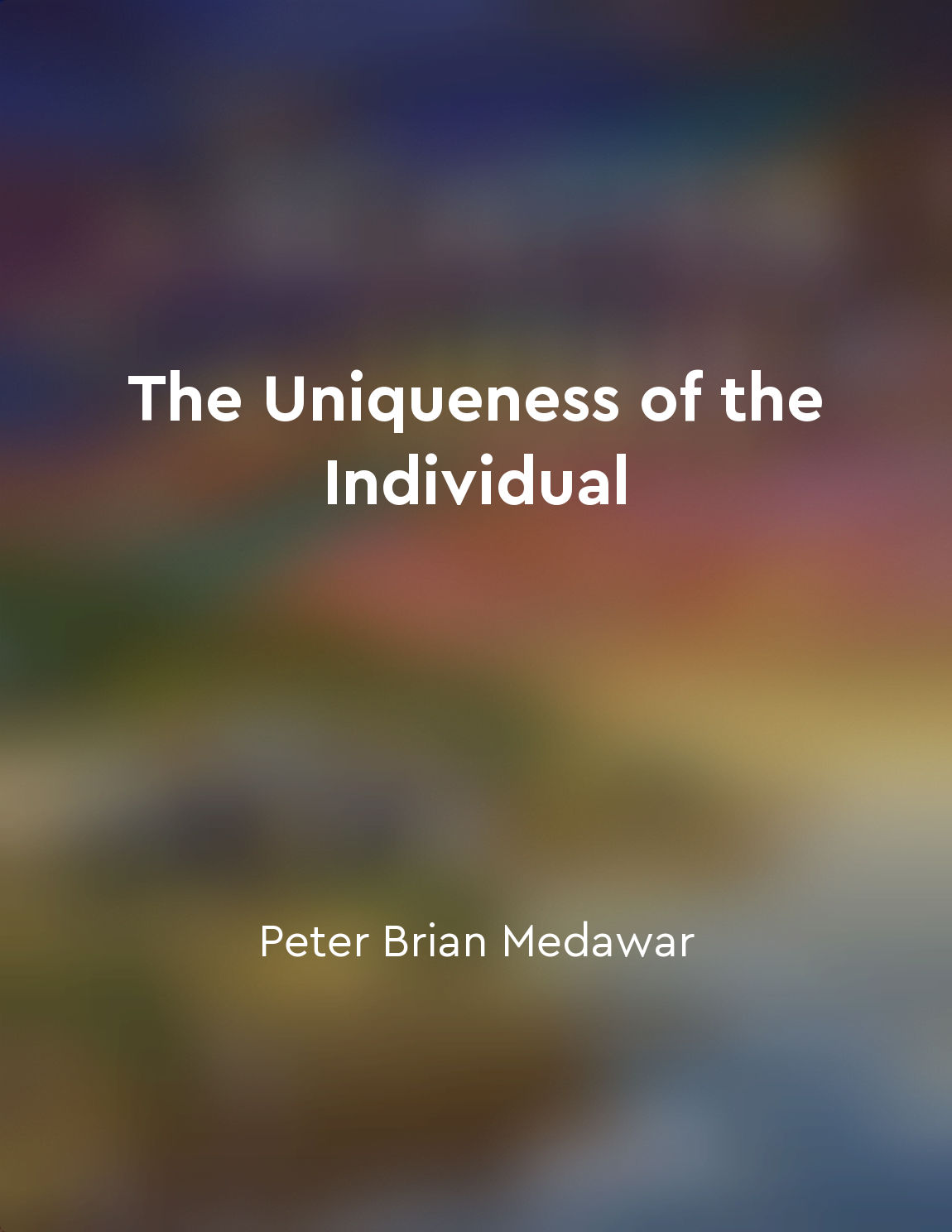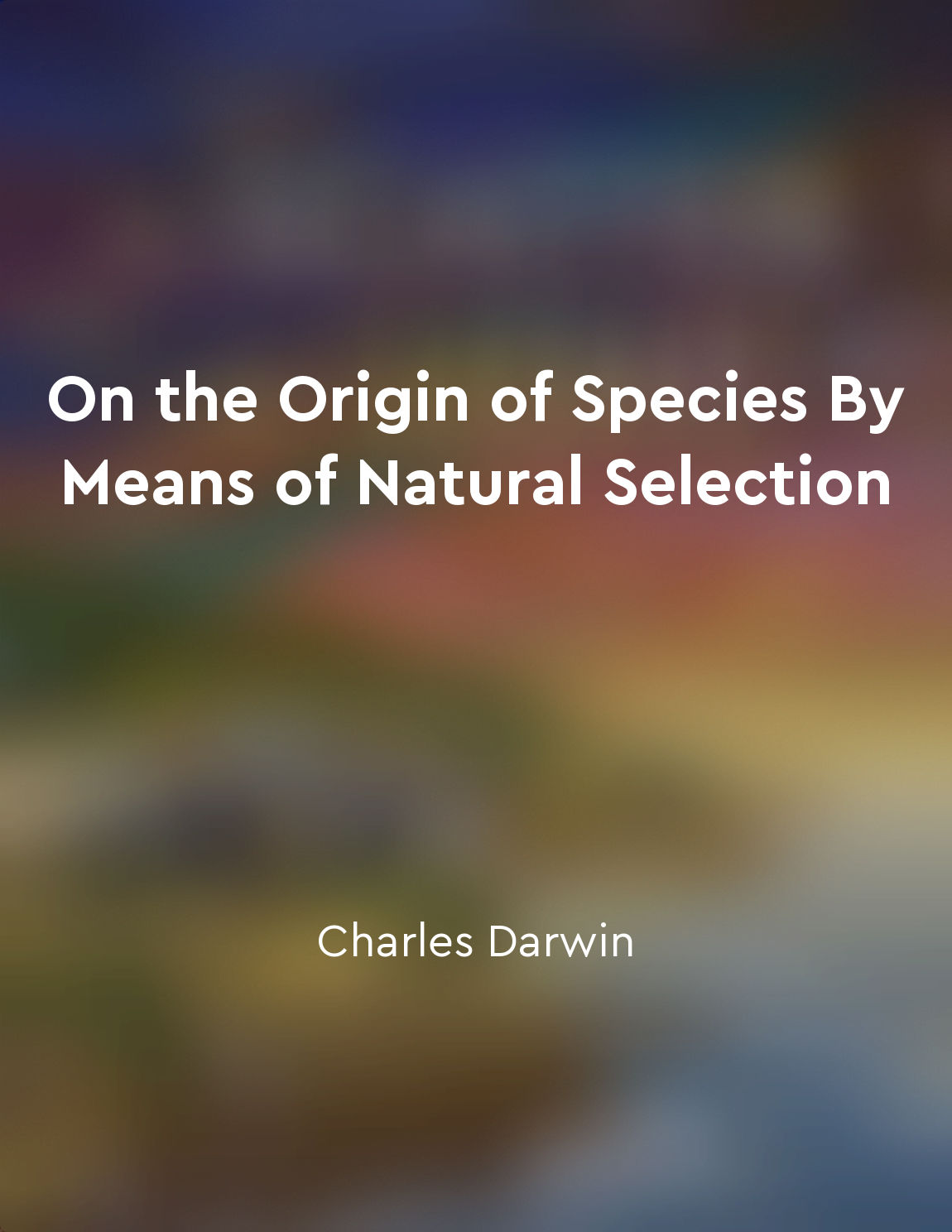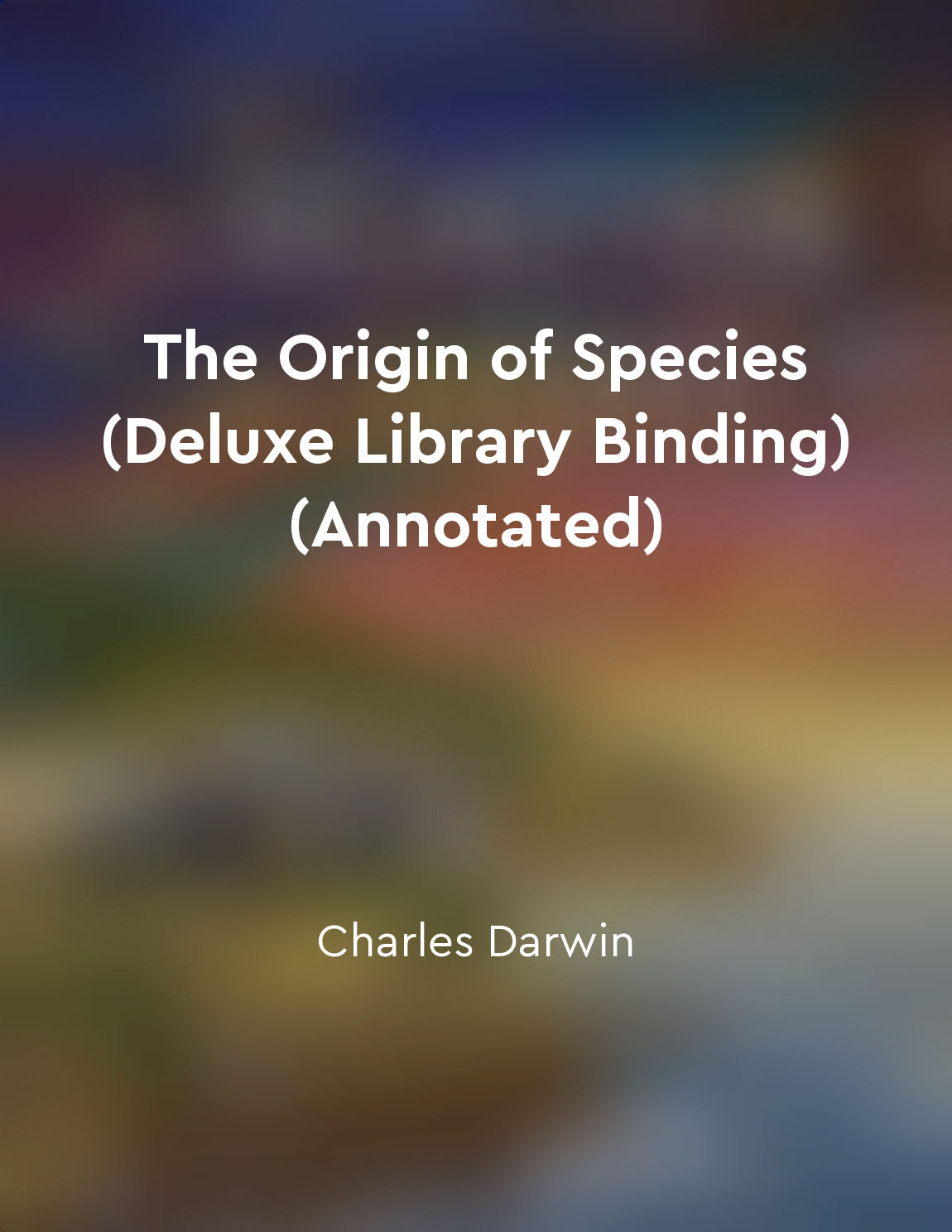Speciation leads to the formation of new species from "summary" of The Greatest Show on Earth by Richard Dawkins
Speciation is the process by which one species splits into two or more separate species. It is a fundamental mechanism underlying the diversity of life on Earth. When populations of a species become isolated from each other, either physically or reproductively, they can start to evolve independently. Over time, these populations may accumulate enough differences that they are no longer able to interbreed and produce fertile offspring. This is when speciation occurs, leading to the formation of new species. The concept of speciation is crucial in understanding how evolution works. Without speciation, there would be no new species to populate the ever-changing environments of our planet. It is through the process of speciation that new adaptations and traits emerge, allowing species to survive and thrive in their respective habitats. One of the key drivers of speciation is natural selection. As populations become isolated and face different environmental pressures, individua...Similar Posts
Genetics plays a role in determining physical characteristics
Genetics, a code inscribed in every human cell, exerts a profound influence on our physical traits. This code, comprised of DNA...

Cultural evolution mirrors biological evolution
The idea that cultural evolution mirrors biological evolution is a powerful one. Just as genes are subject to variation, select...
Thales proposed water as the fundamental substance
Thales, an ancient Greek philosopher from Miletus, put forth the radical idea that water was the fundamental substance from whi...
The importance of emotions in human behavior
Emotions play a crucial role in guiding human behavior. They are deeply rooted in our evolutionary past, influencing our action...

The notion of selfhood is deeply ingrained in the human psyche
The idea that each individual possesses a unique sense of self is a fundamental aspect of human nature. This concept is deeply ...

Unity in diversity of life forms
The principle of unity in diversity of life forms is a fundamental concept in the study of natural selection. This principle de...

Homologous structures in different species
Homologous structures in different species are those which, in their different species, are similar in their form and function,...
Phylogenetics traces evolutionary relationships
Phylogenetics is a field of study that seeks to unravel the complex evolutionary relationships among organisms. By examining th...

Reproduction of successful variations
When we look at the vast and complex world of living organisms, we see a multitude of variations among individuals within a spe...

Genetic mutations contribute to variation
It is well known that all organisms tend to vary in some degree, and that variations are passed down from one generation to the...
